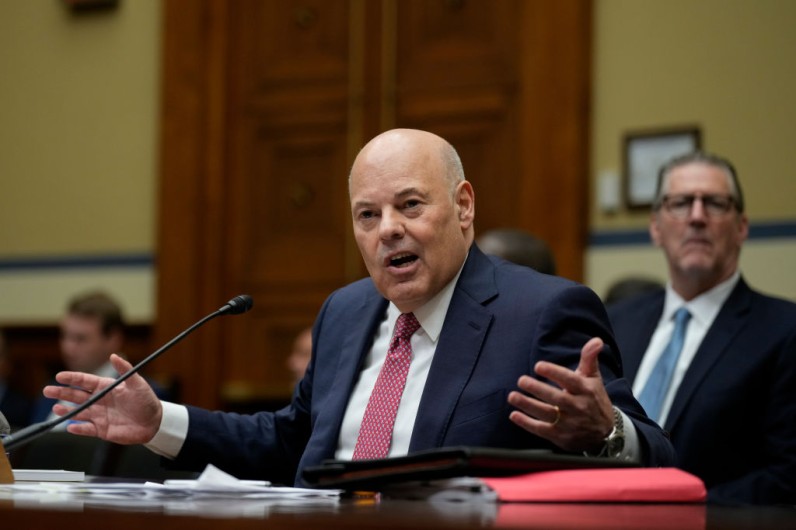
USPS Postmaster General Louis DeJoy has announced plans to resign after nearly five years leading the US Postal Service.
In a letter sent Monday to the Postal Service Board of Governors, DeJoy formally requested the process to find his successor begin immediately.
"As you know, I have worked tirelessly to lead the 640,000 men and women of the Postal Service in accomplishing an extraordinary transformation," DeJoy wrote.
"We have served the American people through an unprecedented pandemic and through a period of high inflation and sensationalized politics."
The USPS confirmed DeJoy's decision in a news release Tuesday, stating that the Board of Governors will now begin identifying the next Postmaster General and Chief Executive Officer.
Board Chairwoman Amber McReynolds acknowledged Louis DeJoy's dedication to the Postal Service over the past five years.
She emphasized the Board's appreciation for his leadership and commitment to modernizing the agency while addressing long-standing challenges, USAToday said.
DeJoy took over as postmaster general in June 2020, becoming the first person in nearly two decades to hold the position without prior USPS experience.
A businessman and Republican donor, his tenure was marked by significant operational changes, mail delays, and controversies related to mail-in voting procedures during the 2020 election.
Postmaster General Louis DeJoy Resigning Amid US Postal Service Financial Disaster pic.twitter.com/8nusNG7mdq
— Wesley L. Austin (@Wesleylaustin) February 20, 2025
DeJoy's $40 Billion USPS Overhaul
One of his most notable initiatives was the Delivering for America plan, a 10-year strategy introduced in March 2021 to stabilize USPS finances and improve efficiency.
The plan outlined over $40 billion in investments, with $20 billion allocated to modernizing mail processing and package delivery networks, $19 billion for retail and delivery infrastructure, and $2 billion for technological upgrades.
While supporters praised the initiative as a necessary step toward financial stability, critics argued that cost-cutting measures, such as consolidating processing centers and limiting overtime, led to slower mail service, particularly in rural areas.
According to AP News, DeJoy defended these changes, stating during a congressional hearing in September that the Postal Service was making long-overdue investments in outdated facilities to build "a Postal Service for the future."
DeJoy also faced legal challenges during his time in office. In 2020, a federal judge restricted some of his cost-cutting measures after finding they contributed to significant mail delays ahead of the presidential election.
His policies, including the reduction of extra truck deliveries and overtime payments, were blamed for leaving mail undelivered and causing disruptions in service.
Despite the controversies, DeJoy reaffirmed his dedication to ensuring a seamless transition.
He formally requested the initiation of the process to identify his successor and pledged to assist in making the transition as smooth as possible.
His goal, he stated, was to minimize any disruptions to the Postal Service and the public while setting up his successor for long-term success.







Join the Conversation